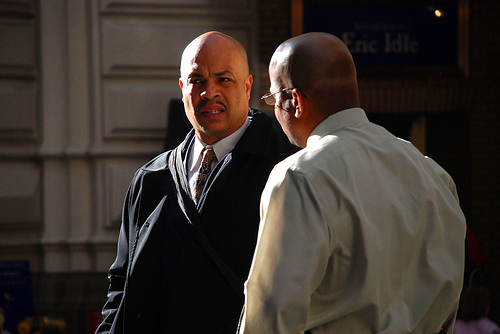
 Whenever I start to feel a little run down, I know what I need to do-prioritize my activities and realize that I can’t say “yes” to everything that comes my way. Knowing my limits and saying “no” when I need to has helped me to stay more energized, avoid burnout and feel happier! Owning my own business has taught me that putting myself first benefits everyone around me. I’m no good to anyone when I’m burned out and miserable.
Whenever I start to feel a little run down, I know what I need to do-prioritize my activities and realize that I can’t say “yes” to everything that comes my way. Knowing my limits and saying “no” when I need to has helped me to stay more energized, avoid burnout and feel happier! Owning my own business has taught me that putting myself first benefits everyone around me. I’m no good to anyone when I’m burned out and miserable.
You’ve probably had the same thing happen. You spread yourself too thin, and then you wear yourself out. You try to do better the next time around, but then your friend asks you to babysit after a long day at work, or your sister ropes you into organizing a big birthday party for your nephew. You know it’s too much, but you don’t want to disappoint anyone. Besides, saying “no” is so difficult, right? You choose to shortchange yourself instead. Unfortunately, that can lead to anger and resentment, which will eventually take a toll on your health if you don’t deal with it.
When you’re fighting cancer, it’s even more important to make adequate time for yourself to rest, meditate, get a massage, and just concentrate on healing. This is self-care! More than any other time, this is when you need to get really good at saying “no.” I realize that it’s not easy, so here are a few tips to help. Start practicing today!
Don’t expect to be perfect. If you’re used to agreeing to any and all demands placed on you, don’t expect to navigate the “no” waters smoothly and easily the first few times. Allow yourself to stumble, but stick with it. You’ll get better with practice.
Prepare what you’re going to say. To raise your odds of carrying it off successfully, write or type what you’re going to say. Give yourself several options like, “I’m flattered you asked, but I have another conflict at that time.” Or, “Typically I enjoy helping, but I’m not going to be available for a few months.” Or a favorite for when you’re feeling panicked, “Let me think about it and get back to you.” This will give you time to get clear on what you want to say. Ask the person when he/she needs your answer and wait until that deadline. Don’t rush yourself to make a decision.
Be firm. You may find your tone of voice over-apologetic at first. This gives the other person the wrong impression-like maybe she can change your mind with a little pressure. Practice saying, “I’m sorry, that’s not going to work for me” in a firm, decisive tone of voice. If you’re dealing with a particularly pushy person, don’t be afraid to just smile and repeat the statement. “I’m sorry, that’s not going to work for me.” They’ll get the idea. If you feel some guilt, remember that you spoke your truth, and you didn’t really “hurt” anyone. What others think of you after you graciously declined is none of your business. You are learning to set boundaries.
Don’t feel you have to explain. Keep it simple. You have no obligation to explain your reasons for saying no, unless you want to. A simple statement is all you need. You also don’t need to feel like you have to make up a reason, or fabricate a story. Respect yourself and allow others to respect you by making your decision and letting that be enough.
Write down your priorities. What is most important to you right now? Is it to take an extra shift at work? Or to get the rest you need? Write down your top 5-10 priorities and keep these in front of you on a daily basis to help you stick to your resolve. Remember that when you say “yes” to something, you’re saying “no” to something else you could do with that block of time. Be absolutely sure about any commitment you make.
Tune into your body. When someone makes a request, how does it make you feel? Tune into your stomach. Does it feel tight and tense? Do you have a sense of foreboding? If so, make no mistake-your answer needs to be “no.” If the request makes you feel excited and energetic, consider saying yes. Just make sure the task will benefit you, not take away from your ability to heal. Saying “no” is well worth the temporary discomfort you may feel in disappointing someone.
Remember: You’re not being selfish. If you find yourself feeling guilty about saying no, stop! You have every right to make decisions that are best for your health and happiness. You wouldn’t expect anyone else to sacrifice themselves for you-don’t expect it of yourself. Besides, saying “no” means you’ll have the energy and vitality to meet the commitments that are important to you.
Do you have other tips for learning how to say “no?” Please share them with us.
Photo courtesy viaduckvideo via Flickr.com.

